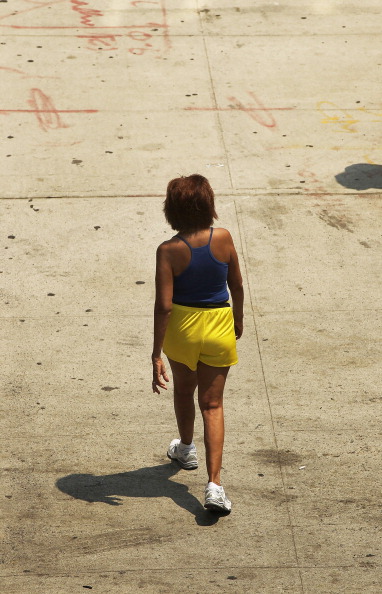
It is July and the 3 Hs are upon us: Hazy, Hot, and Humid. It is not just uncomfortable. A bad heat wave can become a slow-motion weather catastrophe, killing many people, especially elderly and poor people.
Heat exhaustion or heat stroke happen when a person is exposed to high temperatures for a period of time and is usually accompanied by dehydration. Heat exhaustion is a serious medical situation. Heat stroke is a medical emergency.
Any time the heat index-a measurement that combines humidity and air temperature-is over 90, you could be in danger of heat exhaustion or heat stroke. The elderly and small children are at greatest risk with a high heat index, but anyone can have a problem.
Symptoms of heat exhaustion include dizziness; feeling faint; headache; tiredness; nausea, vomiting, or diarrhea; pale skin; muscle cramps; or a rapid heartbeat. Your urine may be darker than usual. You may lose consciousness.
If you have any of these symptoms, get out of the heat immediately and sit down. If you can't get into an air-conditioned area, find a shady spot to sit. Drink plenty of fluids, but nothing with alcohol or caffeine. If you can, take a cool shower or bath. If these symptoms do not go away, seek emergency medical help.
If the symptoms continue, you are in danger of developing heat stroke, where your body cannot cool itself down and your core temperature is rising. Your brain and vital organs are at risk as your body temperature rises. Symptoms include a throbbing headache, lack of sweating despite the heat, skin that is hot and dry, nausea and vomiting, rapid breathing, rapid heartbeat, fainting, and seizures.
If you or anyone around you shows symptoms of heat stroke, call for emergency medical assistance immediately. After you call, start first aid by moving the person to a cool area immediately. If they are conscious, give them cold water to drink. Wet down their skin and fan air over the skin. If you can, put the patient in a tub of cool water or apply ice packs to their armpits, groin, and neck.
